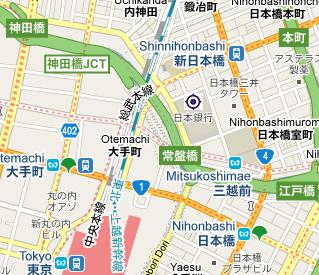| |
|
|
|
|
 |
|
|
Home
»
Central Banks
Worldwide
»
Bank of Japan |
|
Bank of
Japan
|
|
|
|
 |
The Bank of
Japan (日本銀行, Nippon Ginkō, BOJ) is the central bank of Japan. The Bank is
often called Nichigin (日銀) for short. |
|
|
|
|
It has its
head office in Chuo-ku, Tokyo. Like most modern Japanese institutions, the
Bank of Japan was founded after the Meiji Restoration. Since the
introduction of the new law, the Bank of Japan has persistently rebuffed
government requests to stimulate the economy. It is a juridical person
established based on the Bank of Japan Act and is not a government agency or
a private corporation.
The Bank of
Japan, within the competences defined by the Act, is independent of any
other power for the accomplishment of its main objective and in exercising
the tasks assigned. The Act also stipulates the Bank's principle of currency
and monetary control as follows: 'currency and monetary control by the Bank
of Japan shall be aimed at achieving price stability, thereby contributing
to the sound development of the national economy.' |
|
The Policy Board is established as the Bank's highest decision-making body.
The Board determines the guideline for currency and monetary control, sets
the basic principles for carrying out the Bank's operations, and oversees
the fulfillment of the duties of Bank officers, excluding Auditors and
Counselors.
According to its charter, the missions of the Bank of Japan are:
♦ Issuance and management of banknotes;
♦ Implementation of monetary policy;
♦ Providing settlement services and ensuring the stability of the financial
system;
♦ Treasury and government securities-related operations;
♦ International activities; and
♦ Compilation of data, economic analyses and research activities.
The Bank has 32 branches and 14
local offices in Japan, and 7 overseas representative offices.
|
|
 |
|
Bank of Japan |
|
HQ
Address: |
2-1-1
Nihonbashi-Hongokucho
Chuo-ku
Tokyo 103-8660
Japan |
|
Telephone: |
+81 3 3279
1111 |
|
Swift Code: |
BOJPJPJT |
|
Website: |
www.boj.or.jp |
|
Currency: |
Yen |
|
Banking Hours: |
|
Monday - Friday : 9.00am - 3.00pm |
|
|
|
In Japan, the
Financial Services Agency (金融庁, Kin'yūchō) serves as a
regulatory authority and overseeing banking services in order to ensure
the stability of the financial system of Japan. Banks are corporations
that have been established in accordance with the Companies Act and have
obtained a license to conduct banking business in accordance with the
Banking Act. The Banking Act empowers the Commissioner of the
FSA to
demand reports and materials concerning the business or financial
conditions of a bank (including its agencies), to conduct on-site
inspections at bank premises, to penalize misconduct (suspension of a
bank's operations or revocation of its license) and to order a bank to
hold a part of its assets within Japan.
On the other hand, the Bank of Japan (BOJ) is
not a regulatory authority per se under the Banking Act, but it
conducts on-site examinations in order to maintain a safe and sound
financial system. These examinations are based on bilateral
agreements between the BOJ and financial institutions that have
current accounts with it under the Bank of Japan Act. In practice,
this includes all city banks, regional banks, regional banks II and
trust banks as well as foreign banks in Japan.
|
|
|
|
|
|
|
|
|
 |
|
|
|
DISCLAIMER
The content comes from Internet, reasonable efforts are made to maintain accuracy of information published.
However, information could contain errors or inaccuracies and is presented
without warranty and statutory means.
No liability is assumed for errors or omissions. Viewers are advised to
consult their banker or financial consultant for complete information and
their professional advise.
All trademarks, logos, brand names and copyrights are the property of their
respective owners. |
|
|
© 2011 - 2022 BankHeadOffice.com ® All
Rights Reserved |
|
|
|
|
|